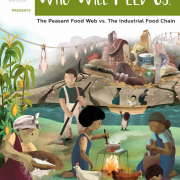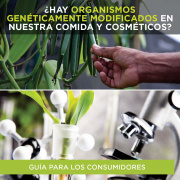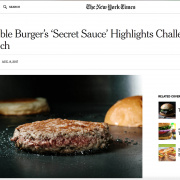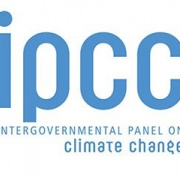Who Will Feed Us? The Industrial Food Chain vs the Peasant Food Web
Enviado por Dru Oja Jay el
We are told that it is big agribusiness, with its flashy techno-fixes and financial clout, that will save the world from widespread hunger and malnutrition and help food systems weather the impacts of climate change. However, a new report from ETC Group shows that in fact, it is a diverse network of small-scale producers, dubbed the Peasant Food Web, that feeds 70% of the world, including the most hungry and marginalized people.






